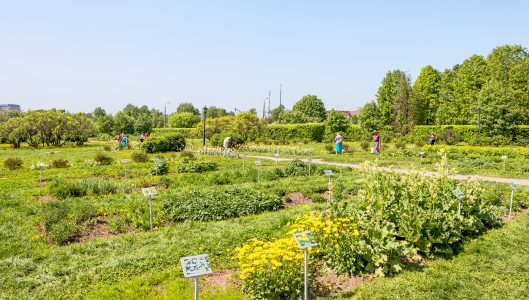Plant Medicine
What is Plant Medicine
- From the earliest times, medicinal plants have been crucial to sustaining the health and well being of people. Traditional cultures from around the world each have unique plants specific to their region that encourage homeostasis and wellness. A 60,000-year-old burial site excavated in Iraq was found to contain eight different medicinal plants, including Ephedra (Ephedra sinica).
- Plant medicine can include: tinctures, infusions, decoctions, capsules, pills, lozenges, jellos, creams, essences, ointments, balms, wines, fomentation, liniments, poultices, plasters and tinctures (an alcoholic extract of the plant using vodka or grain alcohol , the percentage varies on plant parts used higher percentage for more gummy and resinous parts) .
Laboratory Tests and the Effects of Plant Medicine
- There has been a resurgence of plant medicine as we learn the scientific components to how plants are still a relevant option for treatment or balance within the body. Holistic health is the whole picture of health which includes physical, mental, emotional, social and even spiritual factors.
- BLOOD TESTSCalcium & sodium channel blockade: Kava kavaDecrease warfarin effect: Green tea
Digoxin Immunoreactivity: Ginseng, Chan Su, Dan Shen, Oleandrin,
Elevated Liver Function Tests: [alanine aminotransferase (ALT), aspartate aminotransferase (AST), and bilirubin concentrations] from use of kava-kava.
Falsely elevated digoxin levels: Lu Shen Wan
Fibrinolysis: Dan Shen
Hypoglycemia: Ginseng
Hypokalemic: Licorice root
Increase warfarin effect: Borage oil, Cat’s Claw, Dan Shen, Dong Quai, Feverfew, Garlic, Ginger, Ginkgo biloba, Licorice root, Pentagyn
Lower therapeutic serum drug level: St. John’s Wort
Neurotransmitter inhibition: Valerian root
Platelet inhibition: Dan Shen, Garlic, Ginkgo biloba
ECG TESTS
Arrhythmia: Chan Su , Ephedra, Lobelia, Oleandrin, Passion flower,
Hypertension: Bitter Orange, Chan Su, Ephedra, Ginkgo biloba, Licorice root, Yohimbe
Hypotension: Valerian root,
Tachycardia: Valerian root, Yohimbe
(Clinlab Navigator, 2020)
Results / Conclusions
- Plant medicine can affect many different professions due to the different ways plants can affect the body. Ask your patients about their phyto-therapy routine. The various disciplines that should be aware of plant therapy are: Doctors, Nurses, Medical Lab Technicians / Assistants, Pharmacists, Pharmacist Technicians, Dental Assistants / Hygienists, & Massage Therapists
Phyto-therapy
Cratageus oxyacantha “Hawthorn” flos and Fruc.
Hawthorn berries are considered to strengthen the heart muscle whereas the flowers and leaves have a role in the function of the heart. This plant would be considered for treatment in arrhythmias, mild congestive heart failure, atherosclerosis and improvement in heart rate variability.
Hawthorn may act synergistically with cardiac glycosides such as digoxin, beta blockers or other hypotensives. Communication with prescribing physicians is vital .
Leonurus Cardiaca “Motherwort”
Is an excellent heart tonic, research has shown that Leonurus is able to calm palpitations, tachycardia and irregular heartbeats. It is a specific remedy for tachycardia caused by anxiety and may be used in all heart conditions associated with anxiety and tension.
The alkaloid leonurine produces central nervous depressant and hypotensive effects in animals, and stachydrine may also be involved. The glycosides have a short-term ability to lower blood pressure in hypertension.
According to Chinese research it may also reduce blood platelet aggregation and decrease levels of blood lipids
Caution statins
Gymnema Sylvestre – Gymnema
.Gymnema has been used in the treatment of diabetes mellitus in India for over 2000 years.
It has the ability to interact with sugar taste, sugar absorption, pancreatic function and peripheral insulin response.
Caution: hypoglycaemic drugs and insulin.
Centella Asiatica “Gotu Kola
Key actions are Circulatory/Capillary/Venous tonic
Peripheral vasodilatation.
Centella promotes circulation and is indicated for a wide variety of circulatory problems, providing overall blood vessel support for conditions such as varicose veins, varicose eczema, dementia, etc..
Caution do not take during pregnancy
Clinlab Navigator. (2020). Retrieved from Herbs & Lab Tests: http://www.clinlabnavigator.com/effect-of-herbal-medicines-on-lab-tests.html Dr. Hauschka Skin Care. (2020). Retrieved from https://www.dr.hauschka.com/en_US/our-ingredients/plant-heroes/st-johns-wort/ National Center for Complementary and Integrative Health. (2019, Feb 13). [Image] Retrieved from Herb-Drug Interactions: https://nccih.nih.gov/health/providers/digest/herb-drug Wikipedia. (2018). [Image] Retrieved from Apothecary Garden: https://upload.wikimedia.org/wikipedia/commons/4/44/Apothecary_garden_4.jpg All knowledge provided by Jada Belleau learned from Pacific Rim College. Introduction to Plant Therapy taught by James Christian.


